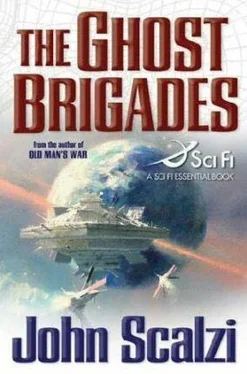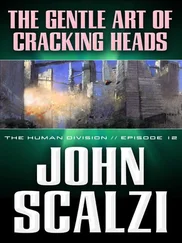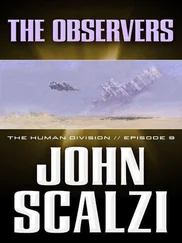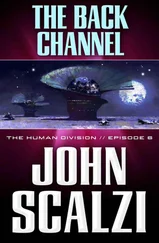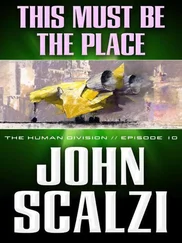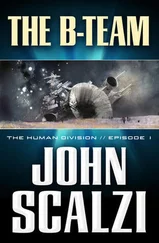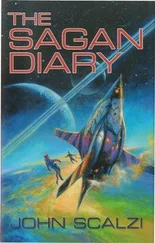Presently Mattson turned his attention back to Szilard. "Boutin is one of my people," he said. "For better or worse. I can't pass the responsibility for this to you, Szi."
"Fine," Szilard said, and nodded to Robbins. "Then let me borrow Robbins. He can act as your liaison, so Military Research will still have a hand in. We'll share information. We'll borrow the technician too. Wilson. He can work with our technicians to integrate the Consu technology. If it works, we have Charles Boutin's memories and motivations and a way to prepare for this war. If it doesn't work, I have another Special Forces solider. Waste not. Want not."
Mattson looked over to Szilard, considering. "You seem eager to do this, Szi," Mattson said.
"Humans are moving toward war with three species who have allied together," Szilard said. "That's never happened before. We could take on any one of them, but not all three at once. Special Forces have been told to stop this war before it starts. If this helps us to do that, we should do it. Try it, at the very least."
"Robbins," Mattson said. "Your thoughts."
"If General Szilard is correct, then doing this would get around the legal and ethical issues," Robbins said. "That makes it worth a shot. And we'll still be in the loop." Robbins had his own personal set of worries about working with Special Forces technicians and soldiers, but it didn't seem the right time to air them.
Mattson, however, did not need to be so circumspect. "Your boys and girls don't play well with normal types, General," Mattson said. "That's one reason why Military Research and Special Forces research don't work together much."
"Special Forces are soldiers, first and last," Szilard said. "They'll follow orders. We'll make it work. We've done it before. We had a regular CDF solider take part in Special Forces missions at the Battle of Coral. If we can make that work, we can get technicians to work together without undue bloodshed."
Mattson tapped the table in front of him, pensively. "How long will this take?" he asked.
"We'll have to build a new template for this body, not just adapt previous genetics," Szilard said. "I'd need to double-check with my techs, but they usually take a month to build from scratch. After that it takes sixteen weeks minimum to grow a body. And then whatever time we need to develop the process to transfer the consciousness. We can do that and grow the body at the same time."
"You can't make that go any faster?" Mattson said.
"We could make it go faster," Szilard said. "But then you'd have a dead body. Or worse. You know you can't rush body manufacture. Your own soldiers' bodies are grown on the same schedule, and I think you remember what happens when you rush that."
Mattson grimaced; Robbins, who had been Mattson's liaison for only eighteen months, was reminded that Mattson had been at this job for a very long time. No matter their working relationship, there were still gaps in Robbins' knowledge of his boss.
"Fine," Mattson said. "Take it. See if you can get anything out of it. But you watch him. I had my problems with Boutin, but I never saw him as a traitor. He fooled me. He fooled everyone. You'll have Charles Boutin's mind in one of your Special Forces bodies. God only knows what he could do with one of those."
"Agreed," Szilard said. "If the transfer is a success, we'll know it sooner than later. If it's not, I know where I can put him. Just to be sure."
"Good," Mattson said, and looked up again at Phoenix, circling in sky. "Phoenix," he said, watching the world twirl above him. " A reborn creature. Well, that's appropriate. A phoenix is supposed to rise up from the flames, you know. Let's just hope this reborn creature doesn't bring everything down in them."
They all stared at the planet above them.
"This is it," Colonel Robbins said to Lieutenant Wilson, as the body, encased in its creche, was wheeled into the de-canting lab.
"This is it," agreed Wilson, who moved over to a monitor that would momentarily display the body's vital signs. "Were you ever a father, Colonel?"
"No," Robbins said. "My personal inclinations didn't run that way."
"Well, then," Wilson said. "This is as close as you'll probably get."
Normally the birthing lab would be filled with up to sixteen Special Forces soldiers being decanted at once—soldiers who would be activated and trained together to build unit cohesion during training, and to ease the soldiers' disorientation at being activated fully conscious but without any memory to speak of. This time, there was just one soldier: The one who would house Charles Boutin's consciousness.
It had been more than two centuries since the nascent Colonial Union, faced with its spectacular failure to defend the earliest of its colonies (the planet Phoenix was called so for a reason), realized that unmodified human soldiers were unable to get the job done. The spirit was willing—human history recorded some of its greatest doomed battles in those years, with the Battle for Armstrong in particular studied as a masterful example of how to turn an imminent rout by alien forces into a shocking and painful Pyrrhic victory for one's enemy—but the flesh was all too weak. The enemy, all of the enemies, were too fast, too vicious, too pitiless and too many. Human technology was good, and weapon to weapon humans were as well-equipped as the vast majority of their adversaries. But the weapon that ultimately matters is the one behind the trigger.
The earliest modifications were relatively simple: increased speed, muscle mass and strength, endurance. Early genetic engineers, however, were hampered by the practical and ethical problems of engineering humans in vitro, and then waiting for them to grow sufficiently large and smart enough to fight, a process that took roughly eighteen years. The Colonial Defense Forces discovered to its intense chagrin that many of its (relatively) lightly genetically-modified humans were not particularly pleased to discover they were raised as a crop of cannon fodder and refused to fight, despite the best indoctrination and propaganda efforts to persuade them otherwise. Unmodified humans were equally scandalized, as the effort smacked of yet another eugenics effort on the part of a human government, and the track record of eugenics-loving governments in the human experience was not exactly stellar.
The Colonial Union survived the wracking waves of political crises that followed in the wake of its earliest attempts to genetically engineer its soldiers, but just barely. Had the Battle for Armstrong not emphatically shown the colonies what sort of universe they were up against, the Union would likely have collapsed and the human colonies would have been left in the position of competing against each other as well as against every other intelligent species they had encountered to date.
The Union was also saved by the near-simultaneous arrival of dual, critical technological discoveries: the ability to force-grow a human body to adult size in months, and the emergence of the consciousness transfer protocol that allowed the personality and memories of one individual to be transported into another brain, provided that brain had the same genetics, and had been adequately prepared with a series of pre-transfer procedures that developed some of the necessary bioelectrical pathways in the brain. These new technologies allowed the Colonial Union to develop a large, alternate pool of potential recruits: The elderly, many of whom would readily accept a life in the military rather than die of old age, and whose deaths, in any event, would not create the multi-generational demographic damage that ensued when large numbers of healthy young adults were blown out of the gene pool at the end of an alien's weapon.
Читать дальше
